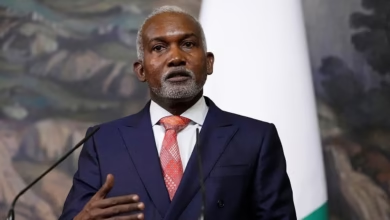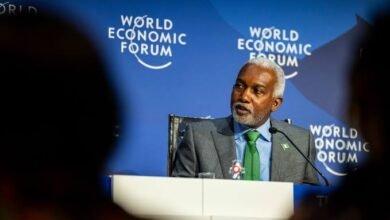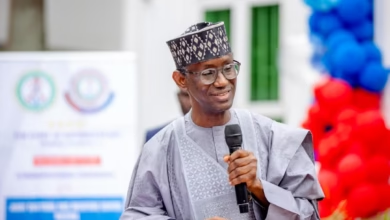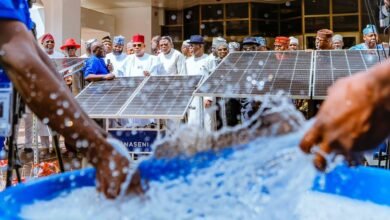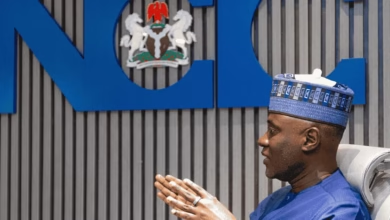Opinion
Blinken’s Africa diplomatic shuttle and US’ fear of China’s rising influence in Africa
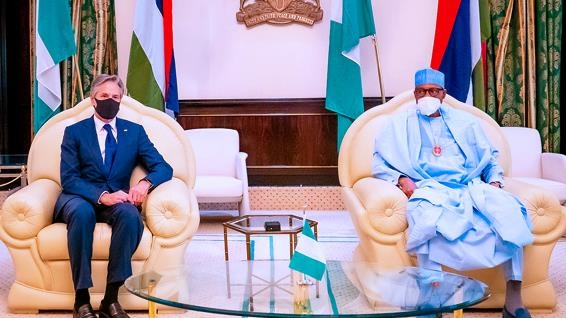
By Austin Maho
Nothing typifies the fear of US government’s fear of China’s rising influence in Africa than the recent diplomatic shuttle of US secretary of state to three African nations.
Antony Blinken in a one week shuttle, unusual of the US government visited the three African nations of Kenya, Nigeria and Senegal mid November.
These three countries were carefully selected for obvious reasons. African is agog and upbeat. Dakar, Senegal is playing host to the 8th ministerial conference of the Forum Of China African Counties (FOCAC).Advertisement
The theme of the conference is, “deepen China-Africa partnership and promote sustainable development to build a China-Africa community with a shared future in the new era”. The FOCAC meeting would further strengthen the strategic and cooperative partnership between Africa and China especially in confronting the global pandemic, building economic prosperity and working towards global peace and development.
FOCAC has become a rallying point of Sino-Africa economic and trade relations a forum of mutually beneficial cooperation of diversified form that has won global applause and at the same time the envy of some foreign nations that seeks to demonize it.
Blinken made his first stop in Kenya where he made an appeal for the preservation of democracy amid the crises in neighboring countries of Ethiopia and Sudan.Advertisement
Kenya is set for elections in 2022 and a major player in the attempt to resolve the crisis in Ethiopia. He spoke about “democratic recession” and the need to strengthen democracy in Africa. Often in diplomacy what is left unsaid is more important than what is said. The top US diplomat was in Africa to throw around US influence on the eve of a major China/Africa conference.
Kenya has one of the oldest bilateral relationship with China having been established in 1963. Most of the critical rail and road infrastructure in Kenya were financed with Chinese aids and technology. Kenya is a major component in China’s Belt and Road Initiative (BRI). Kenya boast of one of the most advanced standard Gauge rail network in the continent which was financed by China’s Exim Bank. The United States renewed diplomatic efforts is designed to gain more influence in East Africa using Kenya as anchor and of course try to whittle the influence of china.
Blinken’s next stop was Nigeria the most populous and influential country in Africa. Nigeria for a long time was ignored by the US government especially under Barack Obama and the Trump administration who famously said African nations were shit holes!
At the height of Nigeria’s war against insurgency the US denied the country critical military hardware to prosecute the war raising issues about human rights violation by resurrecting a little known “Leahy Law” to justify its refusal to assist Nigeria with military hardware. Nigeria had no option but to turn to China and reorient the configuration of its military equipment to accommodate Chinese made military hardware.
The United States has never hidden its disdain for Nigeria and some Think Tanks in the US even predicted the disintegration of the country in 2015!
The US top diplomat throughout the duration of his visit in Nigeria tried to play on words and emotions to raise sentiments against Africa relationship with China. Listen to this statement he made at the ECOWAS Secretariat in Abuja:
“Too many times, the countries of Africa have been treated as junior partners or worse rather than equal ones”
The U.S he however said. “Firmly believes that it’s time to stop treating Africa as a subject of geopolitics and start treating it as the major geopolitical player it has become.”.
This is clearly ridiculous and patronizing. In over a century of relationship with Africa what can the US point to as benefit of the long standing relationship with the West specifically America? What they have bequeathed to African countries are piles of debts, stolen funds warehoused in Western countries which they have refused to repatriate and under development. Perhaps we should ask how fairly and equally America treats its minority population especially blacks?
On the contrary China has treated African countries on the basis of equality, mutually beneficial relationship, win-win and a shared future.
Speaking at a news conference alongside his Nigerian counterpart, Foreign Minister Geoffrey Onyeama, Mr. Blinken said in response to a question about Beijing’s influence in Africa that U.S. engagement “is not about China or any other third party. It’s about Africa.”
But Mr. Onyeama replied classically carpeting the US diplomat:
“Regarding U.S.-Chinese competition in Africa, I mean, I don’t want to sound almost well, cynical, but sometimes it’s a good thing for you if you’re the attractive bride and everybody is offering you wonderful things, you take what you can from each of them,” he said.
The Nigerian Foreign Affairs Minister Geoffrey Onyeama also went ahead to situate our frustrations with Western hypocrisy and demonization of our friendship with China.
He said, “There was just a huge infrastructural deficit that we’re facing in this country and we saw a great opportunity with the Chinese. They’re used to a lot of these huge capital projects and infrastructure projects. We would have gone with anybody else that was providing something at a competitive rate for us.”
In diplomatic terms this was obviously an indictment of Western duplicity and our commitment to accept the hand of friendship offered by the Chinese. The point is that the US now wants to engage with Africa as a result of the growing friendship between Africa and China.
In all the countries visited the policy was clearly to counter the Chinese government influence or present US as an alternative to China. The reality is that the US is in a late struggle, America’s clout in Africa has waned significantly.
A recent report by a well-known African pollster, “Afrobarometer” shows that China ranks first in terms of external influence in Africa, with 63 percent of Africans saying the economic and political influence of China in their country is “somewhat positive” or “very positive”, and 66 percent perceiving China’s economic and political influence in Africa as positive.
China-Africa cooperation is mutually-beneficial in nature and has been welcomed by African countries. In terms of trade, China has been Africa’s largest trading partner for 12 years in a row. In terms of infrastructure, Africa has become China’s second largest market for overseas contract projects.
In the over 20 years of FOCAC, Chinese companies have built or upgraded more than 10,000 kilometers of railway and nearly 100,000 kilometers of highway, creating a total of over 4.5 million jobs. In terms of investment cooperation, the stock of Chinese direct investment in Africa has exceeded $43.4 billion, making China the fourth largest investor in Africa.
The Chinese are a real presence in Africa which the visit of Antony Blinken cannot wish away, the US will find it herculean even to play catch up considering that in the past the US involvement has only been in fits and start and superficial. They use and dump! African countries today are wiser and would be weary to once again put their trust in promises crafted in flowery language without substance.
Austin Maho (PhD) is an Abuja-based journalist and international affairs specialist.

